| Listing 1 - 10 of 60 | << page >> |
Sort by
|
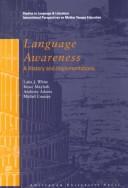
ISBN: 9053564624 Year: 2000 Publisher: Amsterdam Amsterdam university press
Abstract | Keywords | Export | Availability | Bookmark
 Loading...
Loading...Choose an application
- Reference Manager
- EndNote
- RefWorks (Direct export to RefWorks)
Language awareness --- #PBIB:2004.3 --- Linguistic awareness --- Metalinguistic knowledge --- Taalverwerving --- Linguïstiek --- Awareness --- Psycholinguistics --- Language awareness.
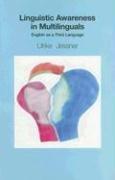
ISBN: 0748671498 9786610501458 1280501456 0748626549 9780748626540 9781280501456 9780748671496 6610501459 0748619135 0748619143 9780748619139 9780748619146 Year: 2006 Publisher: Edinburgh Edinburgh University Press
Abstract | Keywords | Export | Availability | Bookmark
 Loading...
Loading...Choose an application
- Reference Manager
- EndNote
- RefWorks (Direct export to RefWorks)
This book discusses cognitive and psycholinguistic aspects of third language acquisition and trilingualism, and explores the key role of linguistic awareness in multilingual proficiency and language learning. In view of the widespread acquisition of English by those who are already bilingual or are also acquiring a regional lingua franca this study will contribute to the current discussion of multilingualism with English in Europe and beyond, as well as the understanding of multilingual speech processing. The author supports a dynamic view of multilingualism by stressing the cognitive advantages that the contact with more languages can offer and uses this approach as the basis for future language teaching and learning. Chapters cover topics such as performing in a third language, metalinguistic awareness in multilinguals and in multilingual education, and English as a third language in Europe. Key Features: *The first study of the important role metalinguistic awareness plays in multilingual proficiency *Includes a unique comparison of both second and third language acquisition *Useful for students and scholars of applied linguistics, language education, language planning, psycholinguistics, cognitive linguistics and the study of the English language.
Language awareness. --- Multilingualism. --- Plurilingualism --- Polyglottism --- Language and languages --- Linguistic awareness --- Metalinguistic knowledge --- Awareness --- Psycholinguistics
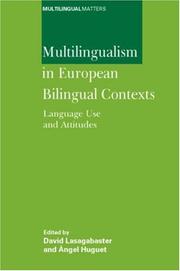

ISBN: 1280739436 9786610739431 185359931X 9781853599316 1853599301 9781853599309 1853599298 9781853599293 Year: 2006 Publisher: Bristol Blue Ridge Summit
Abstract | Keywords | Export | Availability | Bookmark
 Loading...
Loading...Choose an application
- Reference Manager
- EndNote
- RefWorks (Direct export to RefWorks)
To say that multilingualism is the norm and monolingualism the exception has become a truism. In fact, the European Union is clearly committed to a multilingual Europe in which all its educational systems are advised to include two Community languages. It is in this context where this volume analyses the language use and attitudes of would-be teachers, as they will play a paramount role when it comes to keeping multilingualism as one of the key features of the European identity. There are four main reasons why this volume can make a contribution to this field of research. Firstly, it is a transnational study involving nine different bilingual states/areas which allows the reader to compare contexts that, despite sharing some similarities, do have their own peculiarities. Secondly, it considers not only the minority and majority languages, but also the different foreign languages. Thirdly, it relies on the same instrument and methodology. And last but not least, the participants will have an enormous influence on their different educational systems and on their students’ linguistic perceptions.
Bilingualism --- Language awareness --- Multilingualism --- Linguistic awareness --- Metalinguistic knowledge --- Awareness --- Psycholinguistics --- Language and languages --- Languages in contact
Periodical
ISSN: 09658416 17477565 Publisher: Exeter Short Run Press
Abstract | Keywords | Export | Availability | Bookmark
 Loading...
Loading...Choose an application
- Reference Manager
- EndNote
- RefWorks (Direct export to RefWorks)
Language awareness --- Conscience linguistique --- Periodicals --- Périodiques --- Linguistics --- Didactics of languages --- Language awareness. --- Linguistic awareness --- Metalinguistic knowledge --- Awareness --- Psycholinguistics --- Language
Book
ISBN: 1316766837 1316718530 1107169356 1316761797 Year: 2019 Publisher: Cambridge : Cambridge University Press,
Abstract | Keywords | Export | Availability | Bookmark
 Loading...
Loading...Choose an application
- Reference Manager
- EndNote
- RefWorks (Direct export to RefWorks)
Learning language and using language to learn is at the core of any educational activity. Bringing together a globally representative team of experts, this volume presents an innovative and empirically robust collection of studies that examine the role of language in education, with a particular emphasis on features of school-relevant language in middle childhood and adolescents, and its precursors in early childhood. It addresses issues such as how children's linguistic and literacy experiences at home prepare them for school, how the classroom functions as a language-mediated learning environment, and how schools can support language minority students in academic attainment. Set in three parts - Early Childhood, Middle Childhood and Adolescence and Learning in Multilingual Contexts - each part features a discussion from experts in the field to stimulate conversation and further routes for research. Its structure will make it useful for anyone interested in ongoing efforts towards building a pedagogically relevant theory of language learning.
Language awareness. --- Language and education. --- Educational linguistics --- Education --- Language and languages --- Linguistic awareness --- Metalinguistic knowledge --- Awareness --- Psycholinguistics

ISBN: 0262062577 9780262062572 0262513293 0262262738 9786612097089 0262257777 1282097083 1429477326 9780262513296 9780262257770 9781429477321 9781282097087 6612097086 9780262262736 Year: 2006 Publisher: Cambridge, Mass. MIT
Abstract | Keywords | Export | Availability | Bookmark
 Loading...
Loading...Choose an application
- Reference Manager
- EndNote
- RefWorks (Direct export to RefWorks)
An investigation into the beliefs speakers have about language-their de lingua beliefs-that examines the genesis of these beliefs and the central explanatory role they play in the use and understanding of language.
Philosophy of language --- Language awareness. --- Language and languages --- Linguistic awareness --- Metalinguistic knowledge --- Awareness --- Psycholinguistics --- Philosophy. --- Language awareness --- Language and languages - Philosophy --- LINGUISTICS & LANGUAGE/General --- COGNITIVE SCIENCES/General
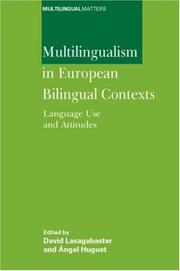
ISBN: 9781853599293 1853599298 Year: 2007 Volume: 135 Publisher: Clevedon Multilingual matters
Abstract | Keywords | Export | Availability | Bookmark
 Loading...
Loading...Choose an application
- Reference Manager
- EndNote
- RefWorks (Direct export to RefWorks)
Multilingualism --- Bilingualism --- Language awareness --- Linguistic awareness --- Metalinguistic knowledge --- Awareness --- Psycholinguistics --- Language and languages --- Languages in contact --- Multilingualism - Europe --- Bilingualism - Europe --- Language awareness - Europe
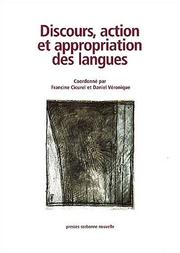
ISBN: 2878542606 Year: 2003 Publisher: Paris Presses de la Sorbonne nouvelle
Abstract | Keywords | Export | Availability | Bookmark
 Loading...
Loading...Choose an application
- Reference Manager
- EndNote
- RefWorks (Direct export to RefWorks)
Second language acquisition. --- Language awareness. --- Language awareness --- Second language acquisition --- Second language learning --- Language acquisition --- Linguistic awareness --- Metalinguistic knowledge --- Awareness --- Psycholinguistics
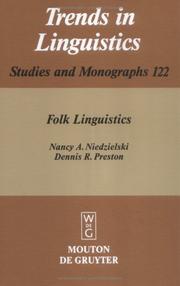
ISBN: 3110162512 1306272629 3111876055 3110803380 9783110803389 9783110162516 Year: 2000 Volume: 122 Publisher: Berlin Mouton de Gruyter
Abstract | Keywords | Export | Availability | Bookmark
 Loading...
Loading...Choose an application
- Reference Manager
- EndNote
- RefWorks (Direct export to RefWorks)
""Folk knowledge of language has not engaged linguists very often in the history of that field. Introductory texts often disparage folkbelief in contrast to 'scientific truth'. In fact, language is a ubiquitous topic of discussion and general concern of the folk. They talk about grammar, pronunciation, first and second language learning, language disabilities, dialects, gender and language, and a host of other topics. This book approaches such beliefs as one of most important aspects of ethnography. Surely what a people believe about their language is as important as any other key to an unders
Linguistics --- Language awareness --- Language awareness. --- Linguistics. --- Psycholinguistics --- Sociolinguistics --- Linguistique --- Conscience linguistique --- Linguistic awareness --- Metalinguistic knowledge --- Awareness --- Linguistic science --- Science of language --- Language and languages
Book
ISBN: 1501501348 1501501321 1501510436 Year: 2018 Publisher: Boston ; Berlin : De Gruyter Mouton,
Abstract | Keywords | Export | Availability | Bookmark
 Loading...
Loading...Choose an application
- Reference Manager
- EndNote
- RefWorks (Direct export to RefWorks)
Within the scope of today's globalisation, linguistic diversity is a given fact of the world we live in. In several educational contexts in Europe, language awareness (LA) activities have been introduced with the objective to prepare pupils cognitively, socially and/or critically for life as multilingual, open minded and/or empowered citizens in a diverse world. Despite previous research in various contexts, the concept of LA remains problematic: a generally accepted, evidence-based conceptualisation is missing. This confronts both research and education with a challenge: in order to develop LA activities, implement them successfully in educational contexts and achieve the expected outcomes, we should know what the concept stands for, how it works and why we would choose to implement it in classrooms (or not). This volume focuses on three apparent simple questions: what, how and why? The first question - what? - refers to the concept(ual mess) of LA. The second question - how? - refers to the implementation of LA activities in several educational contexts. The third question - why? - is a recurrent theme running through all the chapters and deals with a reflection on the way we deal (un)consciously with LA activities in education.
Language awareness. --- Linguistic awareness --- Metalinguistic knowledge --- Awareness --- Psycholinguistics --- Europe. --- Council of Europe countries --- Eastern Hemisphere --- Eurasia --- Language Awareness. --- Language Education. --- Multilingual Literacy. --- Multilingualism.
| Listing 1 - 10 of 60 | << page >> |
Sort by
|

 Search
Search Feedback
Feedback About UniCat
About UniCat  Help
Help News
News